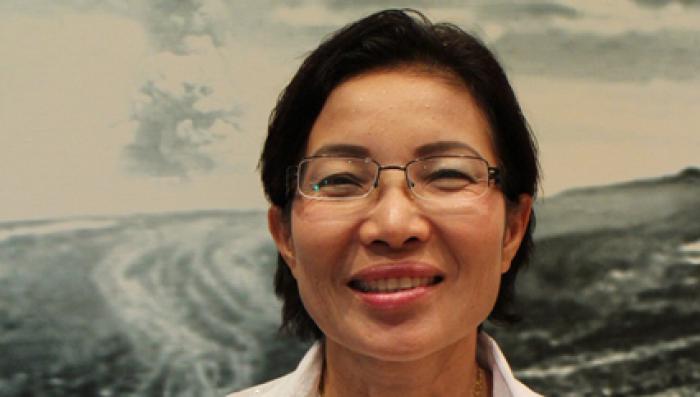Phuket kids to save Karon

Yuphayao Alshammary, 50, has been Director of Suwan-keereekate School in Karon since May 2013. She has an MA in Education Management from Maha Sarakham University and is now pursuing a PhD. Before coming to Phuket, she was director of two rural Northeast schools for more than 15 years.
Here, she talks about how supporting education can help solve Karon’s social and environmental problems.
PHUKET: Karon is facing critical environmental and social problems: drugs, robberies, traffic, wastewater and garbage management.
The main reason we have these problems is because officials have been focusing more on objects than on people. For almost ten years, Karon has been one of Phuket’s most important tourist destinations, and officials have prioritized the development of tourism here, supporting all kinds of facilities for visitors.
What has slipped through the cracks is support for the education of local school children.
That support is especially important because the children we are teaching at Wat Suwan-keereekate School are not rich; rich kids are sent to well-known schools in Phuket Town.
At those schools, well-off parents make sure that their children get a quality education by contributing financial support themselves. They set up Parent’s Clubs, sponsor all kinds of activities and solicit funds from alumni.
Parents at our school are not in a position to do these things.
The government supports us, of course. Like every other school in the country, we receive 1,900 baht per child, per year. However, this amount alone is not enough for any school in Phuket, because the cost of living in the province is so high. It’s especially low for tourist towns like Kata-Karon, where prices are even higher.
As educators, our most important job is to prepare children to live their lives well and to teach them how to support themselves.
Because they are growing up in a tourist town in a tourist province, it’s very likely they will look for jobs in tourism. To be competitive, they must have foreign-language skills.
But we can’t afford to hire foreign-language teachers. We need English, Russian and Chinese teachers, but we simply don’t have the budget.
Knowing a foreign language is not a luxury for our kids, it’s a necessity, but we can’t do it without more financial support.
Our other goals are to teach our students to have self-control, to understand the effects of their
actions and to be able to adapt to change.
We’ve been able to set up some projects on our limited budget to teach these things: a garbage bank and a vegetable garden. The idea with both of these is to teach the children how to make a living and also how to protect the environment.
For the garbage bank, students are assigned to bring in garbage from home or that they find on the way to school. We separate it together, then sell what we can and give the children the proceeds. This teaches the kids that garbage is valuable; that they can separate it by themselves; and that collecting it cleans up our environment.
As for the vegetables, every spare bit of land at the school is a vegetable plot. The crops we grow we serve in the school canteen for lunch. Any excess, we accompany the children to sell at a nearby market. Doing this is fun, and it teaches the students that empty land can be utilized to make money.
We also use the garden plot to teach environmentally healthy practices – we use dishwater to water the plants. The children learn to value water and not release dirty water into local canals.
Children are like pieces of white paper. If we put emphasis on supporting their education, and teach them well, they will grow up to be people who contribute to making Karon a better place. We must not waste this precious opportunity.
— Saran Mitrarat
Latest Thailand News
Follow The Thaiger on Google News:


























